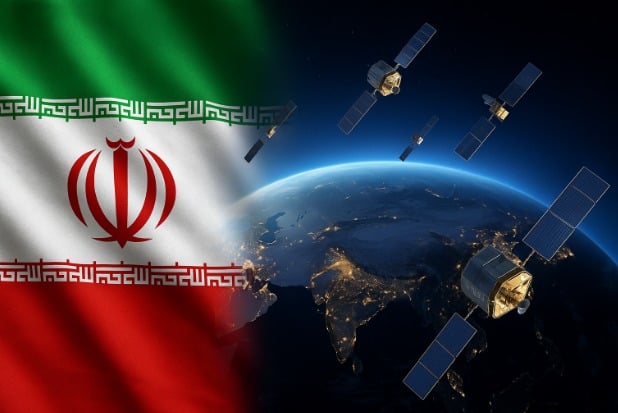Part I: Decline of a Digital Monopole
In the silent orbits above Earth, a new geostrategic reordering is unfolding. The transition of Iran from reliance on the U.S.-controlled Global Positioning System (GPS) to China’s BeiDou satellite navigation system signals a watershed moment in the global contest for technological sovereignty. This article explores the multifaceted dimensions of Iran’s satellite realignment, the implications for global surveillance regimes, and the accelerating fragmentation of the digital commons.
Mapping the Invisible Wars
For decades, the Global Positioning System (GPS), a product of Cold War ingenuity and an instrument of American soft power, has quietly underpinned global navigation, trade, warfare, and daily civilian life. Its ubiquity, however, belies a crucial vulnerability, its unilateral control by the United States military. On June 23, 2025, Iran unceremoniously severed its dependency on this architecture, deactivating GPS reception across its territory and announcing its formal transition to China’s BeiDou satellite navigation system. This manoeuvre, reported with pride on Chinese state media, was not a mere technical substitution. It was a potent declaration of digital sovereignty in an age of contested networks and weaponized infrastructure.
Decoupling from the West: Iran’s Strategic Realignment
Iran’s GPS exodus reflects a broader strategy of technological and economic decoupling from Western hegemony. For years, Iranian defence planners tolerated the uncomfortable reality of routing critical positioning, navigation, and timing (PNT) functions through American satellites systems that could be degraded, spoofed, or denied during conflict. The risks of such dependency materialized through repeated jamming incidents in the Strait of Hormuz and the alleged targeting of Iranian officials via digital breadcrumbs from apps like WhatsApp and Instagram.
The decision to jettison GPS in favour of BeiDou underscores Tehran’s desire for an uninterruptible navigation backbone, one immune to American sanctions, cyber operations, and surveillance. But beyond immediate utility, this is a symbolic pivot toward a Eurasian techno-political order in which China’s infrastructure is ascendant.
The BeiDou Imperative: Why China Ditched the American Signal
Beijing’s obsession with an autonomous navigation system was crystallized in 1993, when the civilian vessel Yinhe was left adrift in the Indian Ocean after U.S. forces jammed its GPS to detain it, an incident that Chinese elites now cite as the moment they resolved ‘never again’ to cede navigational control to Western satellites. The Yinhe incident not only sowed deep diplomatic resentment but catalysed a long-term national security doctrine, China would build and control its own satellite infrastructure.
BeiDou, now a 45-satellite global constellation, is not just China’s answer to GPS. It is a strategic fulcrum. Offering decimetre-level military accuracy, encrypted communication, and services such as regional short-messaging unavailable in GPS, BeiDou is China’s assertion of infrastructural sovereignty. Its adoption by over 140 countries, including Iran, underscores its credibility as a geostrategic alternative.
What underpins this shift is a growing school of thought championed by China, Russia, and the broader BRICS consortium, that no single nation, however technologically advanced, should monopolize the essential scaffolding of global governance. In this view, systems such as SWIFT for financial transactions, Visa and Mastercard for consumer payments, GPS for global positioning, and even aviation and regulatory standards, must not remain hostage to a U.S.-centric architecture.
China and Russia assert that true multipolarity requires the diffusion of infrastructural power. They argue that global systems of commerce, navigation, surveillance, and enforcement must be diversified, distributed among regional blocs and technological sovereigns to maintain global stability. In this sense, BeiDou is not simply a satellite network but a symbol of counter-hegemonic resistance. It signals that global interoperability must not come at the price of geopolitical submission.
This framework is not without precedent. The European Union’s push for GDPR-compliant digital sovereignty, India’s development of the Unified Payments Interface (UPI), and the rise of alternative messaging protocols among BRICS members all reinforce the notion that the 21st century will not be governed by a single techno-political standard but by competing constellations of influence, each asserting its version of normative legitimacy.
Watch out: Part II of this special series will be published next week. In it, we explore how Iran’s adoption of BeiDou enables precision warfare, reshapes military doctrine in the Middle East, and forces a strategic recalibration in Washington. The geopolitics of orbit are no longer hypothetical, they’re here, and they’re escalating.
By: Kennedy Opoku


